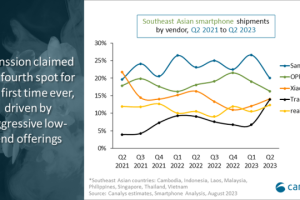Jyotsna Pattabiraman, a Stanford MBA and Melton Fellow is the CEO of Grow Fit, a Banglore based start-up that was launched in February 2016. She has previously held executive leadership positions at PayPal, eBay, Yahoo!, Oracle, OnMobile and Knowlarity in the US and in India. Pattabiraman, in an email interaction with Health Technology
Tell us about Grow Fit and how it works?
Grow Fit was started in September 2015 as an EIR with Growth Story. The company addresses prevention of lifestyle disease through a combination of data science, medical science and behavioral insights. Over 300 million Indians are at risk of lifestyle disease and have nowhere to turn to for support. Lifestyle disease is estimated to rack up over $54 billion in lost income in 2015 alone. While the problem is too large for the medical system to address, Grow Fit believes in empowering Indians to prevent and in many cases, reverse lifestyle disease by addressing its root causes – nutrition, mental wellness, stress, sleep and activity through a combination of expert advice and functional products.
Grow Fit is a comprehensive health companion that offers expert advice (via a mobile app) as well as therapeutic and functional foods. Through the Grow Fit mobile app, users can connect with trained therapists, clinical nutritionists and experienced cosmetologists to discover personalised solutions that are right for them.
They can act on those solutions by themselves or by leveraging Grow Fit’s food products, which include fresh foods (ready-to-eat) as well as staples (packaged foods).
- Grow Fit’s fresh foodsare targeted at the urban professional or homemaker and aims to fuel their healthy lifestyles and reverse lifestyle disease.
- Their staples(packaged foods) ship across India and are meant for people that want to make healthy nutrition a practice for the entire family.
The startup has also launched Grow Self, a mental wellness app where clients chat with trained counselors about their daily life issues. The anonymity of mobile chat helps ease the stigma connected to seeking help. They have a young user base of below 25 years whom they have helped get clarity in key issues in their life.
What are the special key features of the healthcare technology start up?
- Focus on data and outcomes: Through their mobile app, Grow Fit, which has about 100,000 users currently, has learned that Indians are eating diets that are encumbered by excess sugar and refined grains. Armed with this information, Grow Fit not only educates people on how to eat healthy and exercise right, they formulate foods that help Indians prevent lifestyle disease. They are the only comprehensive mobile health solution that goes beyond advice to its actual implementation.
- Grow Fit also has a comprehensive approach that addresses nutrition, activity, skin/hair, sleep and mental wellness. Through their expert platform, users all across India are connected with experts who have been thoroughly vetted. The experts are chosen because of their clinical/scientific background and experience with lifestyle disease.
- Functional products: Recognising that nutrition has a key role to play in addressing and reversing lifestyle disease, Grow Fit has gone beyond advice to cover the last mile, formulating foods that have been shown to improve health metrics significantly in a matter of weeks.
Notable features of GrowFit’s functional foods:
- All their foods are low carb – that is, they aim to reduce your daily carb intake to about 200 g. of carbs a day. Sugar, honey, jaggery, dates and most fruits are avoided.
- Within low carb, two programmes are offered-
– The Lean Machine Programme: Ultra-low carb programme derived from a medical protocol, keeping carbs at under 50 g. a day.
– The Stay Fit Programme: A low GI programme that keeps carbs under 200 g. a day and offers a great deal of fibre for improved gut health and day-long energy.
- Familiar foods are re-interpreted in a low-carb fashion so that people enjoy their meals while meeting their health goals. For example, Black Rice Biriyani or Quinoa Roti are some of GrowFit’s innovations. They taste wonderful and have a great impact.
- Extra care is taken in sourcing, using organic ingredients and many that are hard to find. One cannot get their foods off the shelf. Quinoa, for example, costs INR 700 a kg. and many of the ingredients are so hard to find that they are priced by the gram.
What are the challenges faced by Grow Fit?
- Helping customers change their habits is a challenging task. That said, through the bond between the expert and the customer, GrowFit has helped many customers shed weight, improve their metrics and feel more empowered.
- They are generating their own IP rather than cutting and pasting from western studies. This makes the going harder, but the results are well worth it.
In your opinion, what role do emerging technologies like Big data play in the current technology adoption for healthcare vertical?
Big Data is being used all over the world to help us get smarter about surfacing patterns. It’s an accessory, though not a substitute, for human intuition. At Grow Fit, we use Big Data to help us identify customer patterns and match customers with the strategy that is best for them. Ideally, such technologies will be invisible, just providing customers with the service that is ideal for them.
Telemedicine and wearable devices are the way forward, globally. How do you think India fares there, and what do you think should be done to meet global standards of adaptation?
Technology is revolutionizing healthcare from round-the-clock monitoring to telemedicine. The use of wearable devices is changing the way health data is monitored and analyzed by allowing users to share data, make use of automatic alerts and collaborate with healthcare providers remotely.
India is in the early stages of this technological revolution where innovation is the key. Healthcare sector in India has to bring in novelty not as part of a grand design but from constant experimentation, adaptation and necessity. According a study report by Deloitte the Indian healthcare market, which is currently worth $100 billion, is set to more than double to $280 billion by 2020. Since more than 70% of India’s population is still within the rural limits, the growth of retail medical e-commerce sector is likely to contribute significantly to the proliferation of healthcare amongst rural communities. Consultation through mobile devices using video, images, and audio channels can help bridge the gap between rural and urban infrastructure and enable us to reach out to patients with least or no access to good medical care. Artificial intelligence has a huge role to play. Grow Fit is a step ahead in this aspect with the use of an innovative combination of medical, data and behavioral science to administer holistic healthcare services.




























